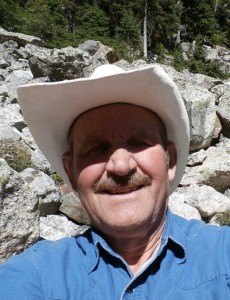One morning I found that a bird had built its nest in the parted mane of Jumbo, our gentle draft horse. I called our veterinarian to tell him of the novelty. He claimed he had a sure-fire way of solving the problem. I said, “That’s easy; just destroy the nest and shoo the bird away.” He said that would rile the bird lovers. Too risky. He advised me to sprinkle brewer’s yeast over the nest and the mane. Screwy “solution” but I tried it. Sure enough, within hours the bird and its nest were gone and Jum was back to normal. I asked him why that worked. He replied, “Yeast is yeast and nest is nest and never the mane shall tweet.”
This apocryphal story is based on Rudyard Kipling’s old adage, “East is east and west is west and never the twain shall meet.” It’s analogous to how regulations imposed by eastern bureaucrats often make no sense. This column will give examples. My next column will examine the legalities and possible benefits of transferring management to Wyoming state entities.
Some Congressional policies often destroy the livelihoods of westerners who depend on the land for sustenance. One example is the unwarranted protection of the Spotted Owl which destroyed the timber industry and eliminated thousands of jobs in the Pacific Northwest. Another is the irrational protection of the Delta Smelt Minnow in California which cut off water to thousands of acres of formerly productive farmland. Another is the introduction of the wolf which has decimated the moose population in the Yellowstone ecosystem and eliminated moose hunting north of Jackson.
Idiocy like this has revived the sagebrush rebellion. Westerners want control of their land.
A recent presentation by The Wilderness Society examined the viability of transferring public land from federal to state management. Their conclusion; it’s a bad idea.
In the Q&A I stated that all of us, including me, desire public land remain pristine, protected and accessible for posterity. However, if government policies were practical and less onerous there wouldn’t be this discontent. When challenged, I gave examples based on my 30 years’ experience as a Forest Service Permittee. These illustrate a disconnect between policy and practicality.
I once owned a kid’s summer camp, surrounded by National Forest. New regulations mandated Permittees carry a small Port-a-Potty on every horse ride and pack out any human #2 feces in a zip-lock bag. I stormed into the Forest Service office refusing to comply until every Forest Service Ranger in a truck or on horseback did the same. They backed down, realizing the absurdity of this requirement.
Several industries—loggers, saw mills, a stud mill, and an electrical generating plant—depended on timber from the Greys River Ranger District. Timber sales by the Forest Service were declining so these companies persuaded the FS to set a minimum of timber harvested annually. In spite of the agreement, timber sales continued to decline because of stringent federal regulations and green group lawsuits. The companies went out of business.
An abandoned logging road in White Creek had grown over with grass and trees, making a nice horse trail. The Forest Service, without public notice or input, “decommissioned” the seven mile road by removing culverts, casting up berms, and ripping the trail with a huge Caterpillar. The result was an eyesore of boulders and deep ravines and a dangerous trail. Permittees and County officials demanded an on-site inspection. The Forest Service admitted their mistake. Too late. The damage was done.
The Forest Service imposed new regulations on the Greys River Ranger District. These required food be locked in bear-proof containers, your cooking fire located a hundred yards from your tent, not leaving a dead game animal within a hundred yards from any trail, and prohibiting clearing or maintaining any trail unless it is delineated on a Forest Service map. County Commissioners convened a public meeting to have Forest Service officials defend these actions taken without public input. Irate citizens explained why these regs were ridiculous: Your cooking fire would be in the next camp; Greys River has no bear problems so food storage regs are an unnecessary hardship; It is impossible for a hunter who kills an elk near a trail to remove it 100 yards from the trail before going to find help to pack it out; Many major trails are not on the Forest Service map. The Forest Service backed down at that time, but continue to try and incrementally impose such stupid regulations.
Today more than 80% of Togwotee Pass’ mature trees are dead or dying and the area is ripe for a catastrophic forest fire. Years ago crews sprayed for pine beetles to prevent widespread timber kill. But political correctness and misguided “green” policies stopped the spraying. Now a whole forest of 200 year old trees has died because a bird with a life-span of three or four years might get sick.
Your public land is actually privately owned by the feds who can lock us out at any time by administrative fiat as they did in October 2013 when they closed the National Parks for political reasons. That is mismanagement in the extreme.
Remember, “Life is always better when viewed from between the ears of a horse.”

